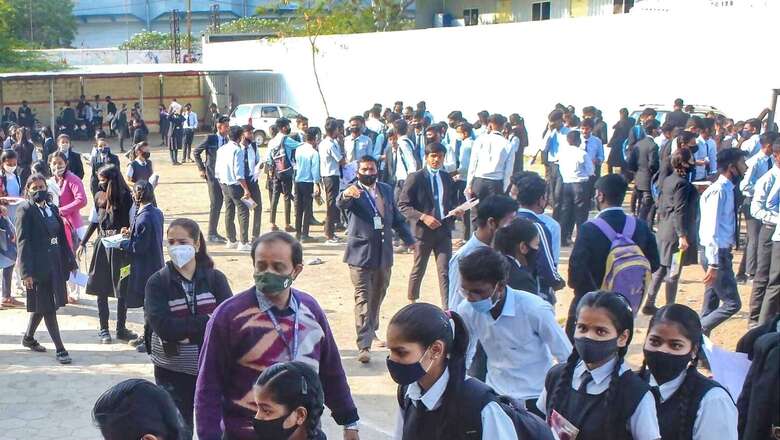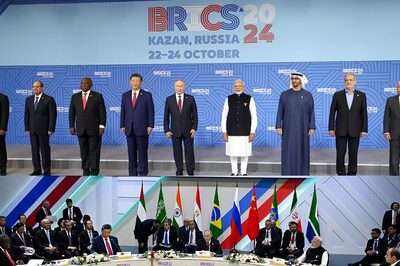
views
While preparing for the upcoming Central Board of Secondary Education (CBSE) term II Chemistry exam, students must acquire knowledge of basics from middle and secondary school level syllabus. It is important for the candidates to be thorough with the formula of compounds, types of bonds, valency, and mole concept, among other topics.
We can divide the subject majorly into three sections – physical, inorganic, and organic and for each of these students must make detailed notes after they have understood the core concepts. Here are some tips for all the students preparing for the upcoming examination:
Also read| CBSE, CISCE Board Exams SC LIVE Updates: SC Dismisses Petition, Says Such Petition Give False Hope to Students
Physical Chemistry:
— Learn the laws given in different units thoroughly.
— Practice solving all types of numerical problems.
— Make a flow chart for revision at the end of each unit. For example, the main points of electrochemistry are electrode potential, Nernst equation and numerical, Gibb’s energy and equilibrium constant, molar conductance and conductivity, Kohlrausch’s law, and its variation.
CBSE 12th Term 1 Result LIVE Updates 2022
Inorganic Chemistry
— Variation in the electronic configuration of d and f-block elements with respect to their common oxidation must be understood clearly in order to relate other properties like ionisation potential, electrode potential, oxidising, and reducing nature.
— Add a comparison of various properties with reason to your notes.
— Hybridisation, geometry, magnetic behaviour, and colour of various complex compounds should be learned according to VBT and CFT.
— This part is completely theoretical so read it thoroughly at least two to three times.
Read| Class 10 No Longer to Have Boards? PIB Clarifies
Organic Chemistry
— Write every reaction by highlighting the named reactions.
— Understand the mechanism of important reactions.
— Apply your knowledge for conversion reactions given in the NCERT textbook.
— Add reasoning points to your notes, specifically for physical properties.
— Maintain a perfect correlation between the units like rate of reactions from kinetics used in organic reactions, electrode potential concept from electrochemistry, and type of crystal lattices i.e. HCP, BCC, and CCP that are very useful in d and f- block element.
Further, create an abridged version of these notes for quick revision. While solving the question paper, write clear and crisp responses. Remember to write a complete reaction with numerical values and units.
— Authored by Ashok Kumar is PGT-Chemistry, VidyaGyan school, Bulandshahr
Read all the Latest Education News and Breaking News here




















Comments
0 comment